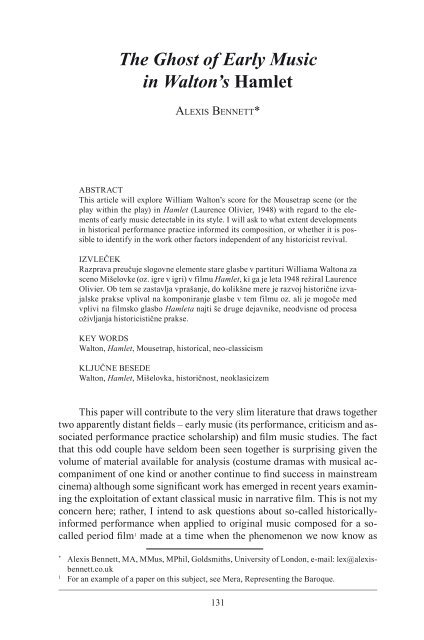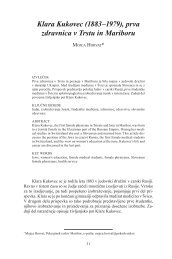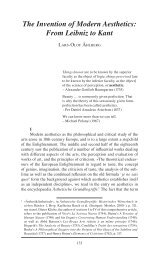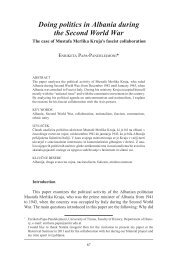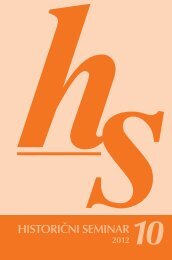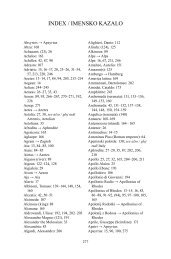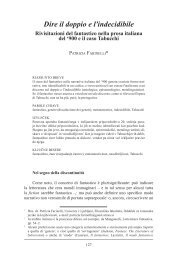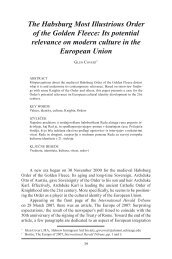HS 9 - HistoriÄni seminar ZRC SAZU
HS 9 - HistoriÄni seminar ZRC SAZU
HS 9 - HistoriÄni seminar ZRC SAZU
You also want an ePaper? Increase the reach of your titles
YUMPU automatically turns print PDFs into web optimized ePapers that Google loves.
The Ghost of Early Music<br />
in Walton’s Hamlet<br />
Alexis Bennett*<br />
ABSTRACT<br />
This article will explore William Walton’s score for the Mousetrap scene (or the<br />
play within the play) in Hamlet (Laurence Olivier, 1948) with regard to the elements<br />
of early music detectable in its style. I will ask to what extent developments<br />
in historical performance practice informed its composition, or whether it is possible<br />
to identify in the work other factors independent of any historicist revival.<br />
IZVLEČEK<br />
Razprava preučuje slogovne elemente stare glasbe v partituri Williama Waltona za<br />
sceno Mišelovke (oz. igre v igri) v filmu Hamlet, ki ga je leta 1948 režiral Laurence<br />
Olivier. Ob tem se zastavlja vprašanje, do kolikšne mere je razvoj historične izvajalske<br />
prakse vplival na komponiranje glasbe v tem filmu oz. ali je mogoče med<br />
vplivi na filmsko glasbo Hamleta najti še druge dejavnike, neodvisne od procesa<br />
oživljanja historicistične prakse.<br />
KEY WORDS<br />
Walton, Hamlet, Mousetrap, historical, neo-classicism<br />
KLJUČNE BESEDE<br />
Walton, Hamlet, Mišelovka, historičnost, neoklasicizem<br />
This paper will contribute to the very slim literature that draws together<br />
two apparently distant fields – early music (its performance, criticism and associated<br />
performance practice scholarship) and film music studies. The fact<br />
that this odd couple have seldom been seen together is surprising given the<br />
volume of material available for analysis (costume dramas with musical accompaniment<br />
of one kind or another continue to find success in mainstream<br />
cinema) although some significant work has emerged in recent years examining<br />
the exploitation of extant classical music in narrative film. This is not my<br />
concern here; rather, I intend to ask questions about so-called historicallyinformed<br />
performance when applied to original music composed for a socalled<br />
period film 1 made at a time when the phenomenon we now know as<br />
*<br />
Alexis Bennett, MA, MMus, MPhil, Goldsmiths, University of London, e-mail: lex@alexisbennett.co.uk<br />
1<br />
For an example of a paper on this subject, see Mera, Representing the Baroque.<br />
131


